To enjoy freshly ground coffee beans at any time, the right storage method is crucial. The aroma and flavor of coffee can significantly change based on how it’s stored. In this article, we’ll dive into key points about storing ground coffee, helping you discover the secrets to maintaining freshness so you can enjoy delicious coffee every day.
We’ll explore what causes coffee beans to oxidize, how to choose the best containers for storage, and the importance of the storage environment. With this information, you can reassess your coffee storage practices and elevate your coffee experience.
- Understand the oxidation of ground coffee beans
- Learn how to choose the right storage containers
- Discover techniques for long-term storage
Keeping Your Ground Coffee Fresh: The Basics
Maintaining the freshness of ground coffee is essential for fully enjoying its rich flavors. When coffee beans are ground, their surface area increases, leading to greater exposure to oxygen. Therefore, knowing how to store them properly is crucial. In this section, we’ll delve into the oxidation of coffee beans and share some tips on how to keep them fresh. With this knowledge, your coffee experience will be even more enjoyable.
What is Coffee Bean Oxidation?
Once coffee beans are ground, they become more susceptible to oxidation. As this process progresses, the delightful aroma and flavor of the coffee begin to fade. Oxidation occurs over time and is particularly noticeable right after the beans are ground. Ideally, you should use ground coffee soon after preparation, but if you need to store it, you’ll need to take some measures to prevent oxidation.
Choosing fresh coffee beans and being mindful of their roasting date is also vital. By selecting beans that have just been roasted, you can enjoy a more vibrant aroma and flavor.
- Ground coffee beans are easily exposed to oxygen
- Oxidation leads to a decline in aroma and flavor
- Choosing fresh beans is important
Tips for Preserving Freshness
To keep your coffee fresh, there are several key points to consider. First, opt for an airtight container for storage. This helps to minimize air exposure and prevent oxidation. The storage location is equally important. Avoid places that are exposed to direct sunlight or high humidity; instead, store your coffee in a cool, dark place.
Additionally, it’s advisable to portion out your ground coffee for storage. By only taking out what you need for each use, you can better protect the remaining coffee from oxidation. Implementing these tips will allow you to enjoy your coffee’s freshness for a longer period.
- Choose an airtight storage container
- Avoid direct sunlight and high humidity
- Portioning out for storage is effective
The Best Containers for Storing Coffee Beans
Choosing the right storage container is crucial for keeping ground coffee beans fresh. The right container helps protect coffee beans from exposure to oxygen, moisture, and light, all of which can compromise their quality. In this section, we’ll explore how to select airtight containers and which types you should avoid. By choosing the right container, you can preserve the flavor of your coffee for a longer time.
How to Choose Airtight Containers
When it comes to storing coffee beans, airtight containers are your best bet. These containers effectively block external air, which helps prevent oxidation. Silicone and glass containers are particularly recommended due to their excellent airtight properties. Additionally, consider containers that allow for vacuum sealing; these can further extend the freshness of your coffee beans.
Also, take the size of the container into account. A container that’s too large can allow air to enter each time you open it, so it’s wise to choose a size that allows for easier use. This way, you can maintain the freshness of your ground coffee more effectively.
- Choose a container with high airtightness
- Silicone or glass containers are ideal
- Select a size appropriate for your usage frequency
Containers to Avoid
There are also certain types of containers you should steer clear of when storing coffee beans. Plastic containers can absorb odors over time, negatively impacting the flavor of your coffee. Transparent containers should also be avoided, as light can lead to degradation; exposure to light accelerates oxidation, causing a loss of freshness.
Moreover, paper containers, which tend to absorb moisture, and any type of container with high permeability should be avoided as well. These containers can allow your coffee beans to absorb moisture, which can ruin their flavor. By selecting the right storage container, you can protect the quality of your coffee beans.
- Avoid plastic containers
- Transparent containers can lead to light degradation
- Containers that easily absorb moisture are also a no-go
The Importance of Storage Environment
When it comes to keeping ground coffee beans fresh, the storage environment plays a crucial role. Temperature, humidity, and light can significantly affect the flavor and aroma of coffee. In this section, we’ll delve into the ideal conditions for storing coffee beans and how to maintain those optimal conditions. By keeping these points in mind, you can enhance your coffee-drinking experience.
The Impact of Temperature and Humidity
Coffee beans are sensitive to temperature and humidity. Ideally, they should be stored in a cool, room-temperature environment. High temperatures can cause the flavor to deteriorate, so it’s essential to be cautious about where you keep them. Additionally, if the humidity level is too high, coffee beans can absorb moisture and develop mold. Conversely, if the humidity is too low, the beans may dry out and lose their flavor.
Therefore, stabilizing temperature and humidity is key when storing coffee beans. It’s particularly advisable to avoid storing them in the refrigerator, as temperature fluctuations and moisture inside can negatively impact the beans.
- The ideal storage temperature is a cool, room-temperature area.
- High temperatures or excess humidity can degrade flavor.
- Avoid storing in the refrigerator.
Protecting from Light
Exposing coffee beans to light can lead to oxidation, which speeds up deterioration. Direct sunlight, in particular, can accelerate this process, making it crucial to choose a dark storage location. In addition to using airtight containers, it’s important to implement measures to block out light.
For instance, using aluminum bags or opaque containers can effectively shield coffee beans from light. When selecting a storage spot, opt for a dark area like a closet rather than a bright kitchen. This way, you can maintain the freshness of your coffee beans for a longer period.

If you’re enjoying this article, be sure to check out our highly informative piece on coffee bean storage, “How to Protect Coffee Beans from Moisture and Oxidation with Large Airtight Containers.” It offers insights into how to prolong the flavor of your coffee using large airtight containers, making it a valuable resource for improving your storage methods.
- Exposure to light accelerates oxidation.
- Use airtight containers to block light.
- It’s important to store in a dark place.
Tips for Long-Term Coffee Bean Storage
When it comes to storing ground coffee beans, ensuring their freshness over the long term is crucial. As time passes, the beans lose their freshness and flavor, making it essential to adopt proper storage methods. In this section, we’ll explore the advantages and considerations of freezing coffee beans, as well as practical ways to store them in convenient portions. By implementing these techniques, you can enjoy your coffee beans for a longer time while keeping them fresh.
Advantages and Considerations of Freezing
Freezing is an effective method for long-term storage of ground coffee beans. By freezing the beans, you can prevent oxidation and extend their flavor profile. This method is particularly useful if you don’t use coffee often or if you buy in bulk.
However, there are a few important points to keep in mind when freezing coffee. First, it’s crucial to divide the beans into appropriate portions before freezing. Avoid refreezing beans once they’ve been thawed; instead, take out only the amount you need to defrost. Additionally, if your freezer has significant temperature fluctuations, the beans may develop frost, so it’s advisable to store them in an airtight container.
- Freezing prevents oxidation
- Portioning based on usage frequency is essential
- Avoid refreezing and use airtight containers
Storing in Convenient Portions
When storing for the long term, it’s important to keep the beans in user-friendly portions. By pre-portioning the amount you need, you can easily access your coffee while preserving the freshness of the remaining beans. For example, separating the beans into smaller bags of 30g or 50g for single-use servings can be very effective.
Labeling these smaller bags with the date of storage helps you keep track of their freshness, reducing the risk of using older beans. Storing in convenient portions is a key tip for maximizing your enjoyment of coffee’s flavor.

If you’re interested in this topic, we recommend checking out our article on “Choosing and Recommended Airtight Storage Containers: The Secrets to Preserving Freshness.” It provides detailed insights on how to keep your food fresh and tips for selecting the right storage containers, making it a valuable resource for long-term storage.
- Store in convenient portions
- Label with storage dates
- Take measures to avoid using old beans
Conclusion
In this article, we’ve explored various tips for storing ground coffee beans. To keep them fresh, it’s crucial to pay attention to your choice of storage container, the environment in which you store them, and even techniques for long-term preservation. By implementing these practices, you can maximize the flavor and aroma of your coffee.
Using an airtight container is particularly important, as it protects the beans from temperature, humidity, and light. Additionally, consider freezing your coffee or storing it in convenient portions to extend its shelf life. With this knowledge, you can elevate your daily coffee experience.
- Use airtight containers to prevent oxidation
- Create a suitable storage environment to maintain flavor
- Enjoy long-lasting coffee with freezing and portioning methods
Take a moment to reassess how you store your coffee beans, and enjoy a more delicious cup! If you have any questions or thoughts, feel free to share them in the comments!








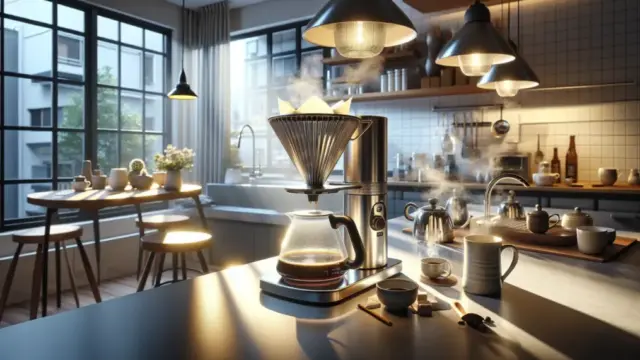


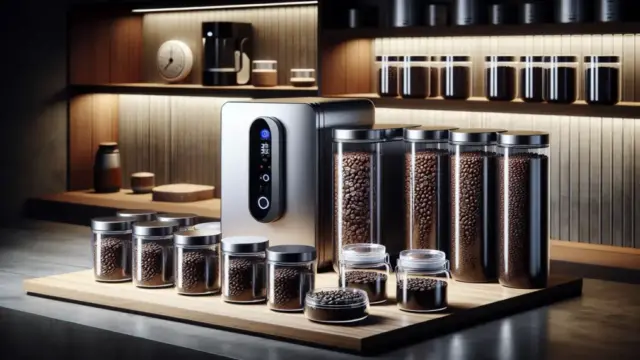



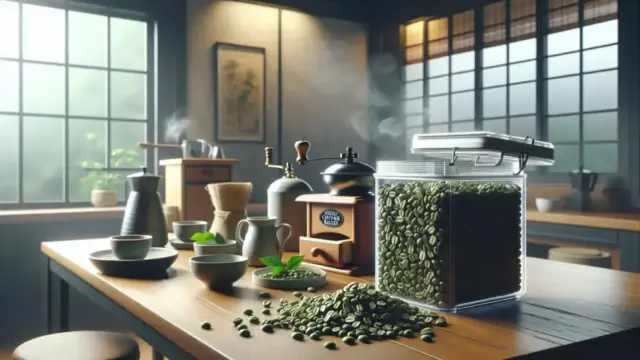







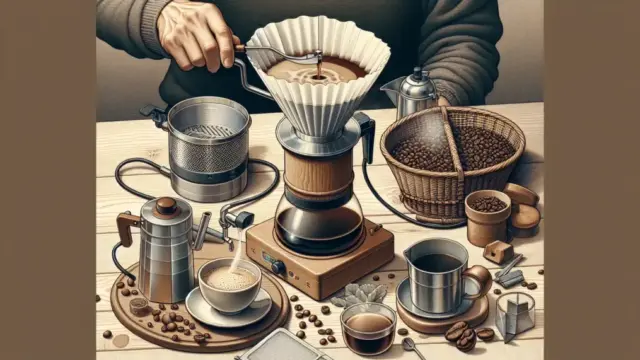



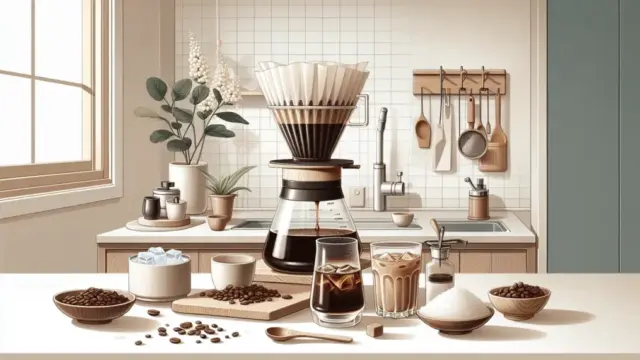

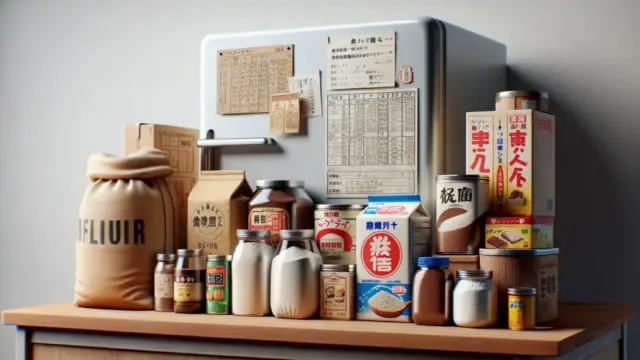









Comment